I first met Dr Vicki Bowes, avian vet/pathologist, in 2019 when I attended a workshop on Small Flock Poultry Health Management that she was presenting. Since that time she’s taken me under her wing and mentored me to provide accurate information to other chicken keepers on my Facebook page and WordPress blog.
Over the last couple of years we’ve met up more than a dozen times to pore over close to 200 cases that have been sent to me or I’ve found in online groups. Dr Bowes looks through the photos, x-rays, lab reports and notes from chicken keepers trying to make a diagnosis and suggestion for treatment options, all the while pointing out things I should be aware of. I’ve turned those stories into the series, Avian Pathology Cases, with more than 30 installments.
She’s even performed necropsies on four of my hens that I was able to photograph and make notes about the procedure and diagnosis and then turned into blog posts.
Occasionally I’ll recount posts I’ve come across in those online groups; sometimes we have a bit of a laugh, but most of the time she shares my dismay at the level of misinformation, erroneous at-home veterinary care and amateur prescribing of course of treatments, including medications. One of the times we were working on her laptop she came across a veterinary poultry group, one that I happen to belong to. The name is a bit of a misnomer because, while the focus is on poultry health issues, qualified vets rarely make an appearance. I think just for the hell of it she pressed the ‘join’ button.
When we met up again she asked how I had the patience to hang in with such groups. I knew what she meant: the conflicting and often erroneous advice, the chickens that were suffering without meds because the idea that ‘birds don’t experience pain like we do’, and those that should have been humanely euthanized long before. What really irked her, as a trained vet and pathologist, was the rather frequent advice to treat with particular antibiotics and other meds. Those things annoy me too, but I hang in trying to reach the folks that recognize, like me, that we are not professionals and what our limitations are.
Dr Bowes is doing her part by training small animal vets in avian issues and educating small flock keepers both here in Canada, but also in developing countries (she volunteered in both Mexico and Kenya in the last year). I think she also sees her mentorship with me as a means of reaching a wider audience to help build capacity among chicken keepers to improve their knowledge base, in turn, increasing the health outcomes of their birds.
I have to admit that it’s challenging to try to educate folks that really are married to their opinions and are not willing to change their point of view. All too often when they are presented with factual information to the contrary they respond with something akin to “You do you, this has always worked for me”. Some folks seem proud to remain ignorant and intractable, don’t mind if they flout the law or upset their neighbours in an attitude of “I can do what I want”. Here’s some examples:
“It’s only illegal if ya get caught. Do what you have to do to protect your flock.” – name withheld
“Any snake on my seven acres is a dead snake and I can do what I want on my property. Ok, now let’s see all the ugly emojis and Karens. Y’all do you and I’ll do me. Ready, set, go because I don’t give a hoot what you have to say, BAM!” – name withheld
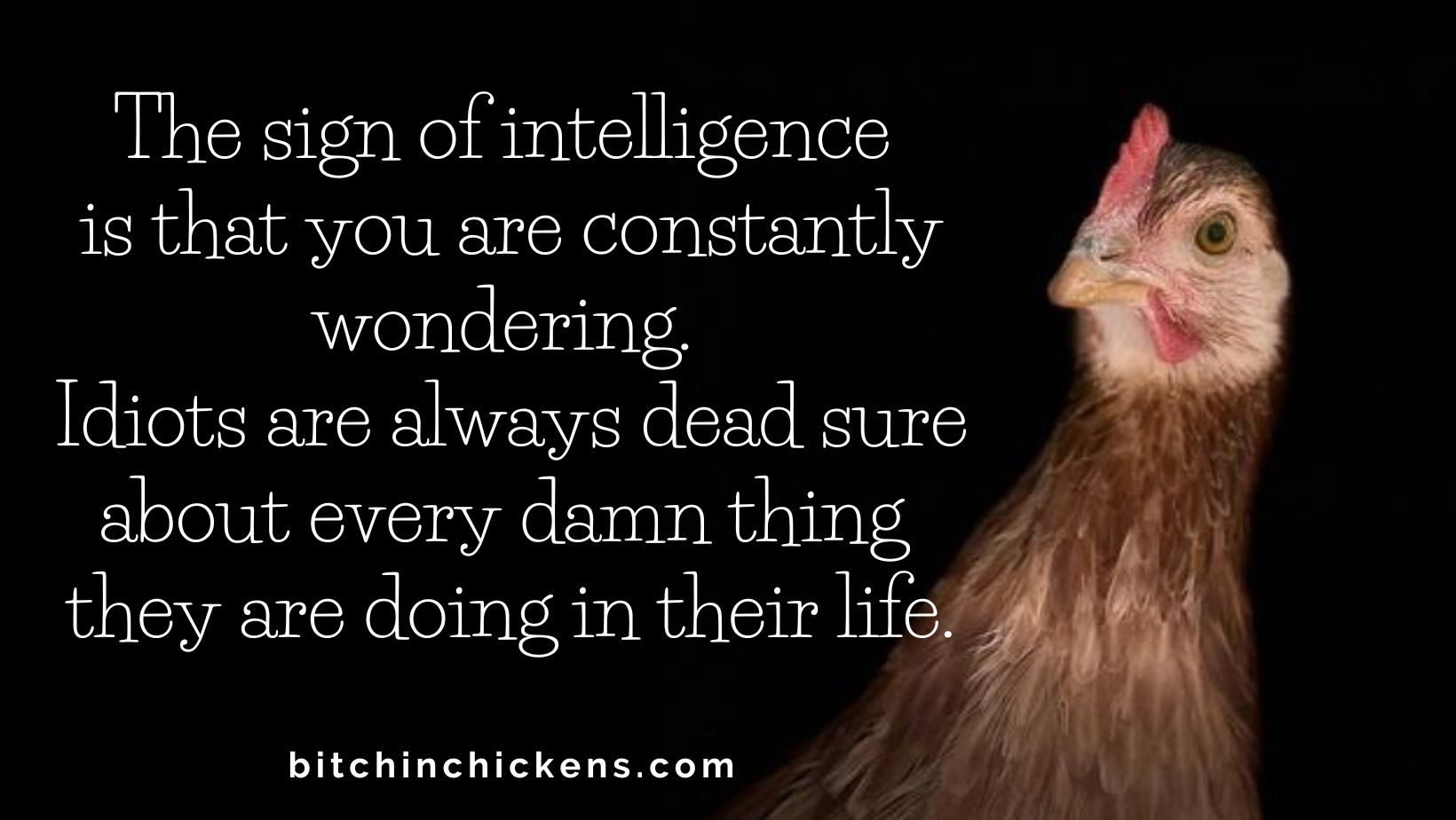
We also commiserated about the repeated diagnoses for virtually any condition including: egg binding, coccidiosis, vitamin deficiencies and wryneck. Epsom salt baths, Corid, probiotics, antibiotics and vitamins, seem to be the go-to for everything, regardless of the illness or how ineffective the treatments will be.
Recognizing my limitations, I jot down notes for things I’ve read or need clarification about and bring them to my meetings with Dr Bowes. When we got together recently I fired off a few questions for her opinion.
As of June 2023, all medically important antibiotics used in livestock production are no longer available in farm and feed stores, and now fall under veterinary oversight. (That has been the case in Canada since 2017). There appears to be a rush from small flock chicken keepers to stockpile meds in advance of that date or find alternatives.
Bitchin’ Chickens: Can Fish Mox be used as an antibiotic in chickens?
Dr Bowes: Fish mox contains amoxicillin (a type of penicillin) and can contribute to penicillin resistance in people who consume eggs from treated birds. I think an antibacterial soak for bumblefoot would be better and I wouldn’t recommend using it orally as a systemic antibiotic.
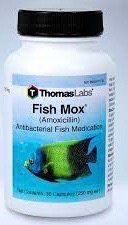
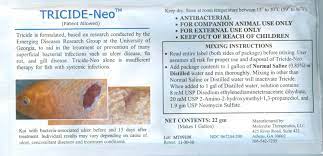
Bitchin’ Chickens: Can Tricide Neo, a product used to treat superficial bacterial infections in fish be used to treat bumblefoot?
Dr Bowes: It does contain neomycin, which is good for some issues in poultry, but not well absorbed for use in Enteritis. There’s also the issue of solubility and dosage. I recommend using a vegetable or similar oil dip and covering the legs in Vaseline.
Bitchin’ Chickens: We’ve seen a number of cases of bumblefoot and other bacterial infections in which folks have used scalpels to dig them out (I admit to having been one of them, but don’t do that anymore, preferring drawing salves and foot baths). What treatment would you recommend?
Dr Bowes: I rarely suggest the owners perform any kind of at-home surgery when there are other options. In the case of bumblefoot, you can do antibacterial or Epsom salt soaks. If the infection is encapsulated, then you can often work the whole thing out in one piece using tweezers.
Bitchin’ Chickens: If I had a dollar for every time I read in an online group warnings about never using products ending in ‘caine’ for pain management because they are toxic to chickens, I’d be rich. That advice gets repeated so often it’s like a mantra with no information to substantiate the claim. Are those products safe in poultry?
Dr Bowes: Lidocaine is used in veterinary medicine both in injectable and topical forms. Yes, it’s true that it is contraindicated in some birds (i.e. very small species such as finches), but not so for poultry. The small amount contained in Polysporin ointment with pain relief is not an issue for a patient the size of a chicken. It not only wouldn’t do harm, it would be beneficial. All animals deserve safe pain management.
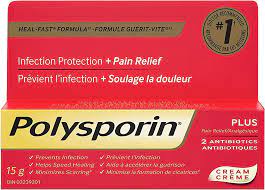

Bitchin’ Chickens: Can Celebrex be used instead of Meloxicam to manage pain?
Dr Bowes: It hasn’t been tested in chickens and therefore there is no known egg or meat withdrawal period. There should be disclaimers that the product was being used off-label. Another issue is that you can’t extrapolate dosages just based on body weight. Chickens, ducks and turkeys all absorb and metabolize medications differently and what is safe in one species, may not be in another. Meloxicam, also used off label in chickens, is the most commonly used pain med.
Bitchin’ Chickens: Can chickens eat yoghurt? Are dairy products harmful to them?
Dr Bowes: Chickens don’t produce lactase, an enzyme that helps to digest lactose, a sugar found in milk and several other dairy products. That doesn’t mean that the calcium and protein in dairy products aren’t beneficial for them. Yoghurt is a good source of vitamins A and B12, and essential amino acids required in building, maintaining and replacing tissue and feathers.
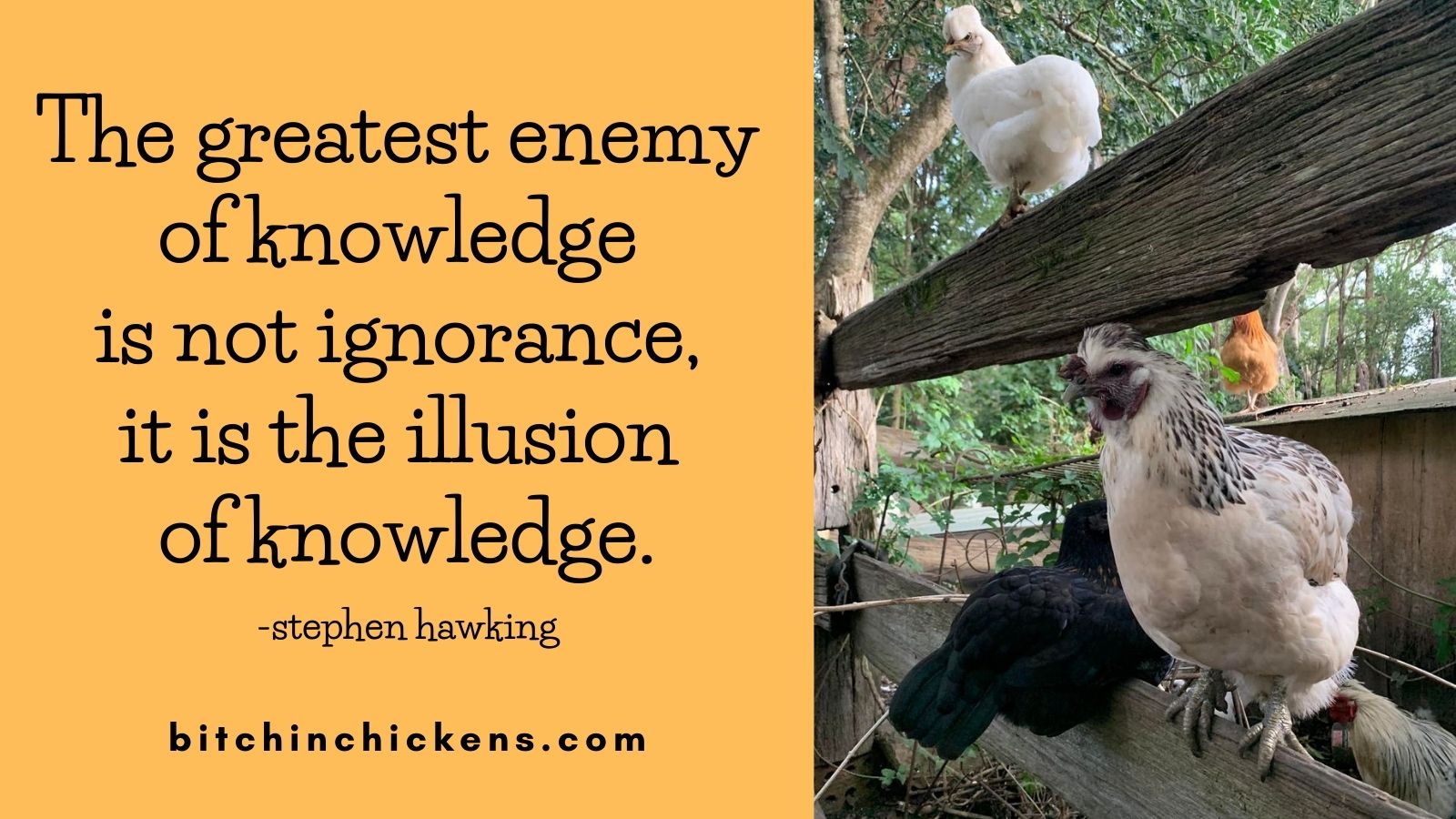
Bitchin’ Chickens: Sometimes I have to give my head a shake when I read advice that seems crazy, and in this case by a blogger with nearly a million followers. The host is not a trained vet, but quotes someone with a PhD to support the advice that dipping a bird’s legs into gasoline is an acceptable treatment for scaly leg mites. I knew when I shared this with Dr Bowes she’d be gobsmacked (and I wasn’t wrong).
Dr Bowes: Firstly, the person with the PhD is not a vet. Secondly, diesel and gasoline are volatile substances: they can cause damage when inhaled and damage to internal organs when absorbed through the skin into the bloodstream and then filtered by the liver and excreted by the kidneys. Neurotoxicity (brain damage) can lead to ataxia and premature death. When people suggest that it’s a safe treatment for chickens I ask if they would do that to themselves, especially if there are other totally effective and harmless ways to deal with mites. Any kind of cooking oil is appropriate for a leg dip, followed by coating the legs with Vaseline to smother the mites.
“The cross-current airflow and blood allows for the chicken’s blood oxygen levels to be higher than their oxygen levels when they expire a breath. The negative consequence of this is it increases their risk of absorbing higher amounts of toxins from the air, thus causing them to reach toxic levels quicker than mammals.” – Poultry DVM
Warning: Graphic Photo
Bitchin’ Chickens: When I first met Dr Bowes she recommended humanely euthanizing a sick or injured bird if they were not making clinic progress within a day or so. At the time, I thought it sounded a tad heartless, but I’ve come to understand that folks prolong their hope, often at the expense of their patient’s suffering. Some cases are so severe that it should be obvious that humane euthanasia is the best option.
I’ve seen several cases lately that have distressed me due to the lack of basic common sense that some folks show towards their birds: people who perform at-home surgery without anesthesia, pain meds, or the skill to know what they are doing; or take days to ask for online advice; or allow a bird to clearly suffer and decline because they don’t know what to do.
The following was posted by an owner looking for advice after her hen was severely wounded:
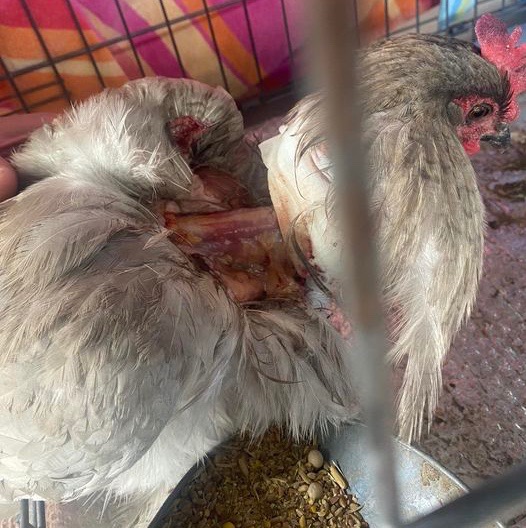
“I’m really not sure if I should bathe her or take her to a vet. I don’t see anything too deep.” – name withheld
To which I replied: “Your chicken’s whole back is missing and you don’t see it?!”
Maybe that sounds harsh but the situation seemed self-evident. If you’d just been attacked by a grizzly bear and large chunks of your body were missing I doubt you’d feel like a bath. You also wouldn’t want to be nudged or pushed about so you could show off your symptoms to be photographed. I’d hope that someone in that scenario would have the sense to call 911.
Dr Bowes: Undoubtedly chickens feel pain, fear, stress and vulnerability when sick or wounded. Humane euthanasia is called for when a situation is irreversible, when a bird will have no quality of life, or when there will be significant pain involved in their recovery. If you are unwilling or unable to seek veterinary care and pain management then the following conditions require euthanasia: bones that are exposed because of pecking injuries; compound fractures; major wounds where there is significant likelihood of infection; the presence of gangrene; or when birds have deteriorated and are no longer functioning normally or have become emaciated.

Many thanks to Dr Bowes for sharing her wisdom and expertise to help us small flock keepers provide better care for our birds.
If you’ve got a question you’d like answered drop me a line via the ‘contact’ button on my homepage.
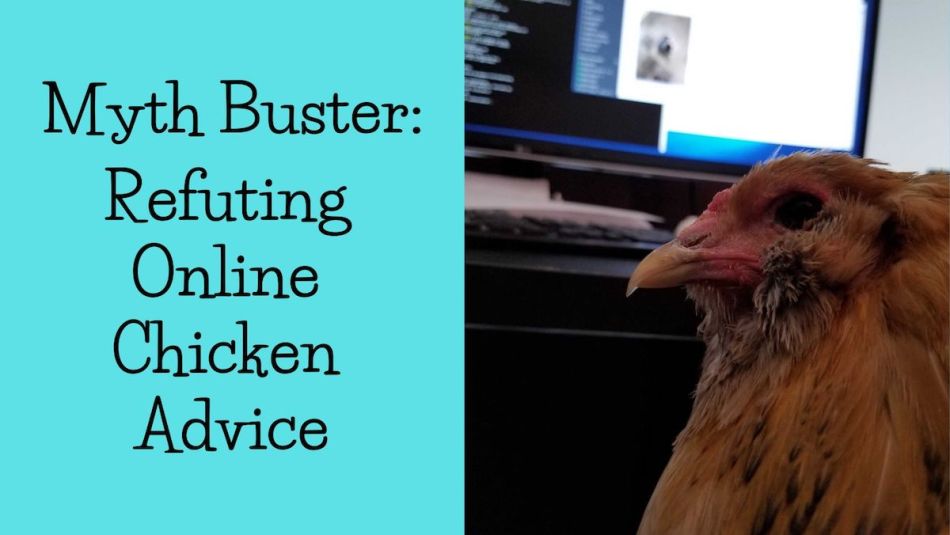
Very interesting post. The amount of misinformation in the hobby is so frustrating, but I don’t have the energy to argue with strangers on the internet- especially those who aren’t just ill-informed but lack all sense of empathy. I wasn’t aware that lidocaine could be safely used until I started looking into it more last night, and a friend shared your blog with me.
The breed I keep requires the cocks be dubbed (removal of the comb, wattles, and ear lobes) to be shown. It is common practice to simply restrain the birds and cut the tissue off, no pain management with ice cold water to stop the bleeding if they’re lucky. I would like to show some of my cocks but I could not conceive doing this without pain management, so I’ve been working with a vet to find a safe anesthetic for chickens. Ultimately I would like to work to change this to be optional in the standard of perfection but in order to have any shot of doing that I do have to make a name for myself showing…
Regarding that quote about snakes- as soon as I learned that fake eggs could negatively impact snakes, who consume them and become fatally impacted, I stopped using fake eggs and encouraged others to do the same. I couldn’t believe the retaliation! People really hate snakes, despite the overwhelming evidence that they reduce rodents and therefore disease and feed theft on a farm.
LikeLiked by 1 person
Holy smokes ! I thought we just had a**holes around here. Nope, you’ve confirmed it. People everywhere are perfectly willing to take a “wait and see” approach to their chickens well being it seems.
When your hen is missing a wing, leg or had part of her head eaten off – it’s time to do something ! Even if that thing is putting them down. Don’t tell me you love your birds when you watch them suffer every day.
Sorry, not sorry.
LikeLiked by 1 person